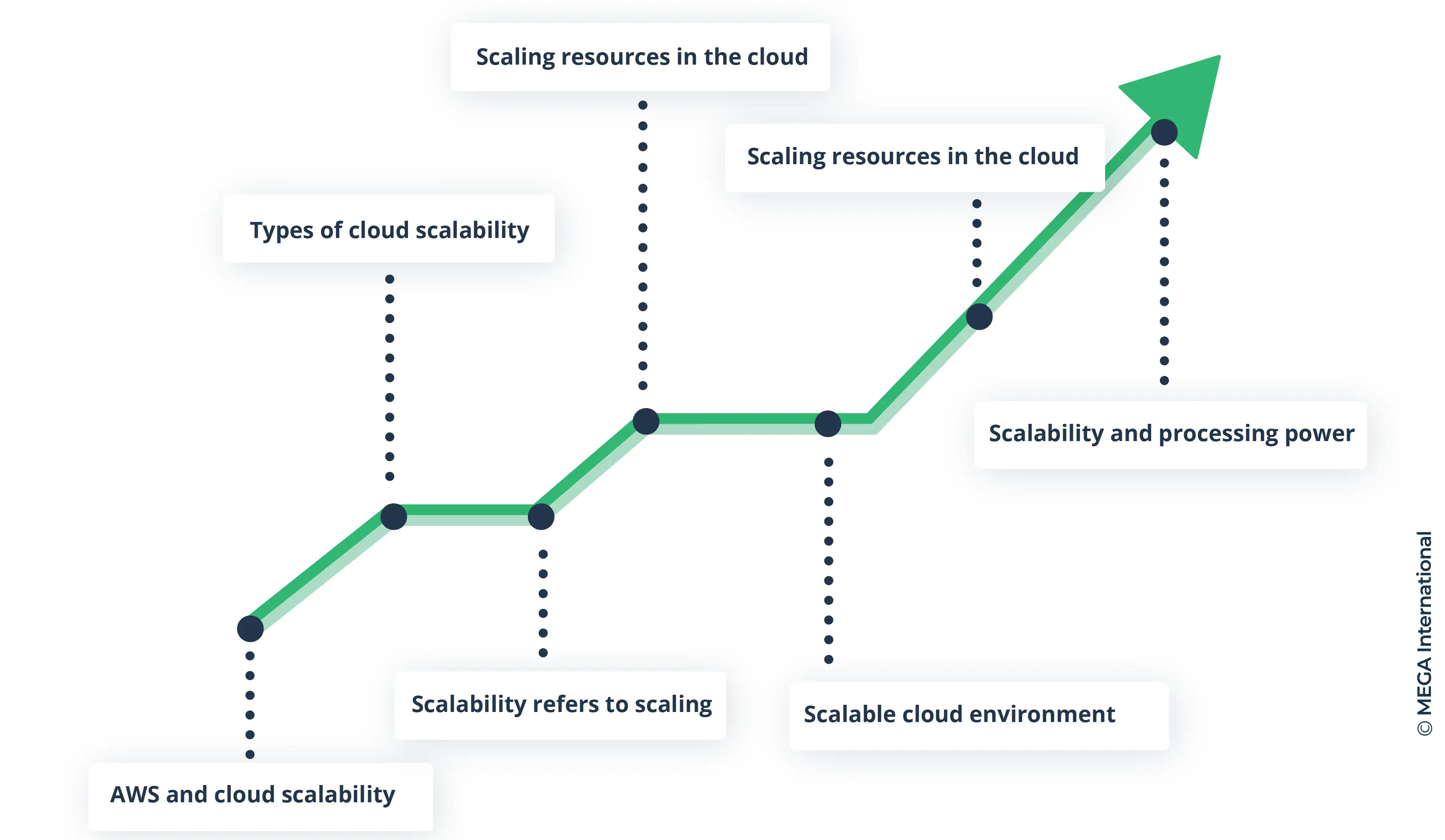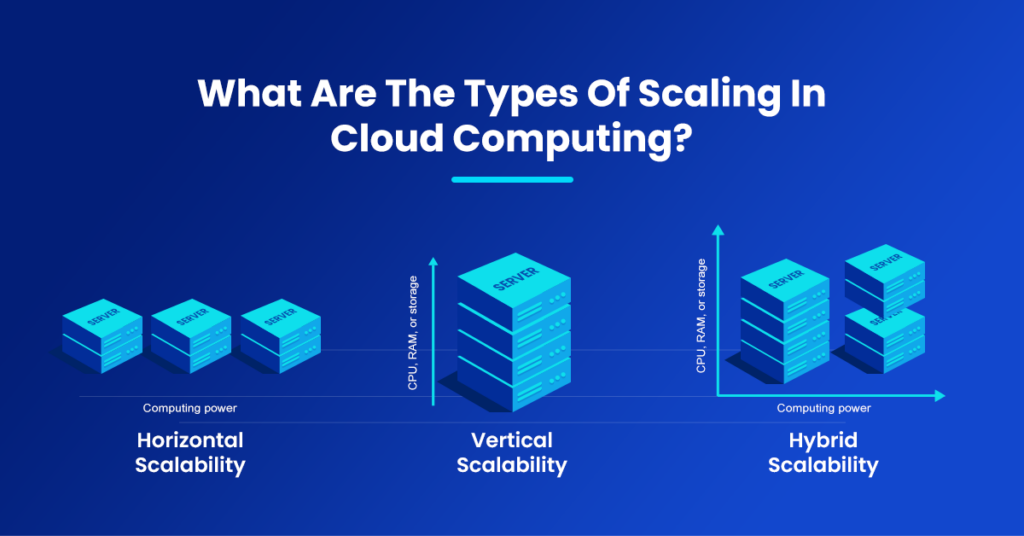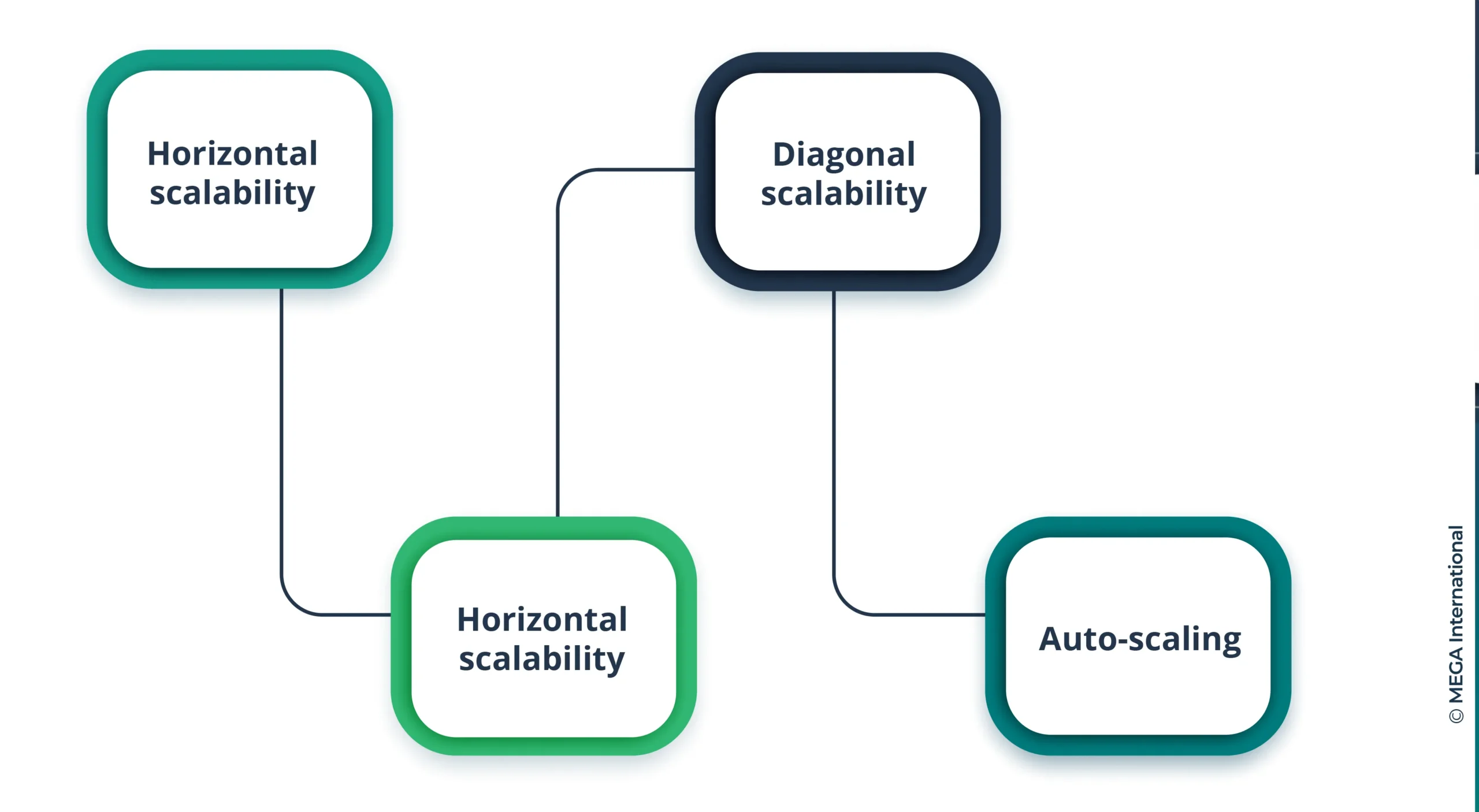Scalable cloud services pricing varies by provider and usage. Plans are designed to meet different business needs.
Cloud services offer flexible options for businesses of all sizes. They provide scalable solutions, which means you only pay for what you use. This flexibility helps manage costs effectively. Providers like Amazon Web Services, Google Cloud, and Microsoft Azure offer diverse plans.
Each plan caters to various workloads and requirements. Small businesses can start with basic plans. Large enterprises may opt for advanced features and higher capacities. Understanding your needs helps choose the right plan. This ensures efficient resource utilization and cost management. Always review and compare different providers. This helps find the best fit for your business needs.
Introduction To Scalable Cloud Services
Scalable cloud services are essential for modern businesses. They offer flexibility and cost savings. Companies can adjust resources based on demand. This capability is crucial for growth and efficiency.
Importance Of Scalability
Scalability allows businesses to handle varying workloads efficiently. It ensures optimal performance during peak times. Companies can avoid over-provisioning of resources. This leads to significant cost savings.
A scalable service adapts to your needs. It grows with your business. You can add or remove resources easily. This flexibility is vital in today’s fast-paced market.
Adoption By Businesses
Many businesses are adopting scalable cloud services. They benefit from reduced costs and increased flexibility. Startups and large enterprises alike find value in scalability.
Here are some reasons for the widespread adoption:
- Cost Efficiency
- Improved Performance
- Enhanced Flexibility
- Better Resource Management
Scalable cloud services provide a competitive edge. They enable businesses to innovate and grow. By adopting these services, companies can stay ahead in the market.
| Feature | Benefit |
|---|---|
| Elasticity | Adjust resources based on demand |
| Cost Efficiency | Pay only for what you use |
| Flexibility | Scale up or down easily |

Credit: www.mega.com
Key Pricing Models
Understanding cloud pricing models is crucial for efficient cost management. Different pricing models cater to various business needs. Here, we explore three key pricing models: Pay-As-You-Go, Reserved Instances, and Spot Instances.
Pay-as-you-go
The Pay-As-You-Go model offers flexibility and scalability. You pay only for the resources you consume. This model suits startups and small businesses. It helps avoid upfront costs and provides scalability.
- Flexible and scalable
- No upfront cost
- Ideal for variable workloads
This model enables businesses to adjust resources based on demand. It helps optimize costs effectively.
Reserved Instances
Reserved Instances offer significant savings for predictable workloads. You commit to using resources for a specific period, typically one or three years. This model suits businesses with stable, predictable workloads.
| Term | Discount |
|---|---|
| 1 Year | Up to 40% |
| 3 Years | Up to 75% |
Reserved Instances provide cost predictability. They ensure resource availability for critical applications.
Spot Instances
Spot Instances offer the lowest prices for cloud resources. These instances are available at unused capacity rates. This model suits non-critical, flexible workloads. You can achieve up to 90% savings compared to Pay-As-You-Go prices.
- Lowest cost option
- Ideal for batch processing
- Suitable for fault-tolerant applications
Using Spot Instances requires careful management. They can be interrupted by the cloud provider. This model is perfect for cost-sensitive tasks.
Cost-effective Plans For Startups
Startups often have limited budgets. Finding cost-effective cloud services can be a game-changer. Scalable cloud services offer various pricing plans tailored for startups. These plans help startups grow without breaking the bank. Let’s explore some of these cost-effective plans.
Free Tier Options
Many cloud providers offer free tier options. These plans are perfect for startups beginning their journey. Free tiers provide essential services without any cost. Here are some popular free tier options:
- Amazon Web Services (AWS) Free Tier: Offers 12 months of free usage for new customers.
- Google Cloud Free Tier: Provides $300 in free credits for 90 days.
- Microsoft Azure Free Account: Includes 12 months of popular services free.
Free tier plans often have usage limits. Startups need to monitor their usage. Exceeding limits can incur charges. But these free tiers are a great way to start small.
Low-cost Plans
For startups needing more resources, low-cost plans are available. These plans offer affordable pricing with more features. Below is a table comparing some popular low-cost plans:
| Provider | Plan Name | Monthly Cost | Features |
|---|---|---|---|
| AWS | Lightsail | $3.50 | 512MB RAM, 1 vCPU, 20GB SSD |
| Google Cloud | GCE Micro | $4.50 | 1 vCPU, 0.6GB RAM |
| Azure | B1S | $5.00 | 1 vCPU, 1GB RAM |
Low-cost plans provide more resources. They are suitable for startups with growing needs. These plans ensure that startups only pay for what they use.
Choosing the right plan can save money. Startups can scale as they grow. This makes cloud services a smart choice for new businesses.

Credit: www.sprintzeal.com
Affordable Enterprise Solutions
Scalable cloud services offer cost-effective plans for businesses. These plans fit any budget and ensure high performance. Large enterprises can benefit significantly from these solutions. They provide flexibility, security, and reliability.
Volume Discounts
Large businesses often require extensive resources. Scalable cloud services offer volume discounts for bulk purchases. This reduces overall costs.
Here is a table showing potential savings:
| Resource Usage | Discount Rate |
|---|---|
| 1-100 GB | 5% |
| 101-500 GB | 10% |
| 501+ GB | 20% |
Volume discounts make it easier for enterprises to manage costs. They help in scaling resources without financial strain.
Customized Pricing
Every business has unique needs. Scalable cloud services offer customized pricing plans. These plans cater to specific requirements.
Benefits of customized pricing include:
- Pay only for what you use
- Flexible resource allocation
- Optimized cost management
Customized pricing ensures businesses do not overspend. It aligns costs with actual usage, making it an efficient option.
Scalable cloud services provide various affordable enterprise solutions. These solutions ensure businesses get the best value for their investment.
Optimizing Cloud Costs
Cloud services offer flexibility and scalability for businesses. Managing cloud costs efficiently is crucial for maximizing returns. Optimizing cloud costs ensures you get the best value from your investments.
Cost Management Tools
Using cost management tools helps track and control your cloud expenses. These tools provide insights into spending patterns. They help identify areas where you can save money.
- Amazon AWS Cost Explorer: Visualizes spending data and forecasts costs.
- Microsoft Azure Cost Management: Offers budgeting and cost analysis tools.
- Google Cloud Platform Pricing Calculator: Estimates costs based on usage.
Best Practices
Following best practices can significantly reduce cloud costs. Implementing these practices ensures efficient use of resources.
- Right-size your services: Match the service size to your actual needs.
- Utilize reserved instances: Commit to longer terms for lower rates.
- Turn off unused resources: Avoid paying for idle services.
Monitoring and adjusting your cloud resources regularly is essential. This helps in keeping costs under control while maintaining performance.
Comparing Major Cloud Providers
Choosing the right cloud service can be hard. AWS, Azure, and Google Cloud are top choices. They offer different pricing and plans. Let’s compare their offerings.
Aws Pricing
Amazon Web Services (AWS) has a complex pricing model. They use a pay-as-you-go approach. This means you only pay for what you use.
AWS offers a free tier. This includes 750 hours of EC2 usage per month. They also offer services like S3 storage and Lambda functions for free within limits.
| Service | Free Tier | Paid Tier |
|---|---|---|
| EC2 | 750 hours/month | $0.023 per hour |
| S3 | 5 GB | $0.023 per GB |
Azure Plans
Microsoft Azure also offers a pay-as-you-go model. They have a free tier and various pricing plans. Azure’s free tier includes 12 months of popular services.
- 750 hours of B1S VM
- 250 GB SQL Database
Azure offers different plans based on your needs. You can choose from basic, standard, or premium plans. Each plan has different features and pricing.
Google Cloud Options
Google Cloud Platform (GCP) provides a similar pay-as-you-go model. They also have a generous free tier. GCP’s free tier includes:
- 300 dollars free credit for new users
- 750 hours of F1-micro instance per month
GCP offers various pricing options. They have sustained use discounts and committed use contracts. These options can save you money if you use services long-term.
Case Studies Of Cost Savings
Understanding cost savings through scalable cloud services is crucial. Businesses, both small and large, benefit significantly. This section highlights real-world examples of such savings.
Small Business Success Stories
Small businesses often struggle with IT infrastructure costs. Scalable cloud services provide a lifeline. Let’s look at some success stories:
- Startup A: Reduced initial IT costs by 70% using cloud services.
- Local Retailer B: Saved 60% by switching to cloud-based point-of-sale systems.
- Freelancer C: Cut software costs in half by using cloud-based tools.
These businesses saw immediate benefits. They experienced lower costs and improved efficiency. Scalable cloud services allowed them to grow quickly.
Large Enterprise Savings
Large enterprises also see significant savings. Below are some notable examples:
| Enterprise | Annual Savings | Key Benefits |
|---|---|---|
| Company X | $1M | Optimized data storage, reduced hardware costs |
| Corporation Y | $2M | Lowered IT maintenance, enhanced scalability |
| Firm Z | $3M | Decreased downtime, improved disaster recovery |
These examples highlight the significant savings large enterprises achieve. The benefits of scalability and cost efficiency are clear.
Future Trends In Cloud Pricing
The landscape of cloud pricing is constantly evolving. The future trends in cloud pricing promise to be dynamic and tailored to user needs. As businesses grow, the demand for scalable and cost-effective cloud solutions increases.
Innovative Pricing Models
Cloud providers are introducing innovative pricing models to meet diverse business needs. These models include:
- Pay-as-you-go: Pay only for the resources you use.
- Subscription-based: Fixed monthly or annual fees for specific services.
- Spot pricing: Purchase unused cloud capacity at reduced rates.
- Reserved instances: Commit to using specific resources for lower costs.
These models offer flexibility and control over cloud expenses. Businesses can choose the model that best fits their usage patterns and budget.
Impact Of Ai And Automation
AI and automation are transforming cloud pricing strategies. AI algorithms can predict usage patterns and optimize resource allocation. This leads to cost savings and efficient resource management.
Automation tools enable real-time monitoring and scaling of cloud resources. This ensures that businesses only pay for what they need. AI-driven recommendations help in selecting the most cost-effective pricing plans.
| Trend | Benefit |
|---|---|
| AI Predictions | Optimized resource allocation |
| Automation | Real-time scaling |
| Cost-effective Plans | Reduced expenses |
Future cloud pricing will be more intelligent and automated. This will make cloud services more accessible and affordable for all businesses.

Credit: www.nops.io
Frequently Asked Questions
What Are Scalable Cloud Services?
Scalable cloud services allow businesses to adjust resources based on demand. This flexibility helps manage costs and performance efficiently.
How Does Cloud Service Pricing Work?
Cloud service pricing typically depends on usage. Customers pay for the resources and services they use, allowing for cost-effective scaling.
What Are The Benefits Of Scalable Cloud Plans?
Scalable cloud plans offer flexibility, cost savings, and efficient resource management. They adapt to changing business needs quickly.
Can I Customize My Cloud Service Plan?
Yes, most providers allow customization of cloud service plans. Businesses can choose resources and features that fit their specific needs.
Conclusion
Choosing the right cloud service plan is crucial. Analyze your needs carefully. Consider scalability, cost, and features. Make informed decisions for your business growth. Affordable and scalable options are available. Find a plan that fits your budget. Invest wisely in cloud services.
Your business success depends on it.





